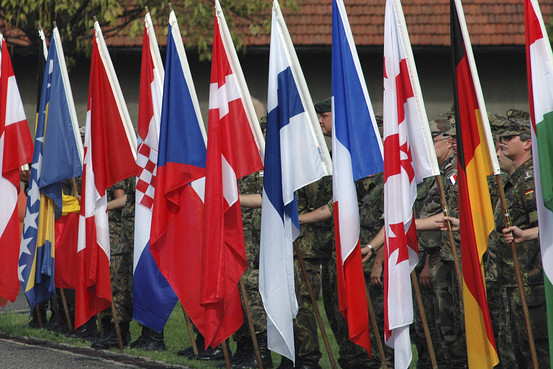
From Tomas Valasek, the Wall Street Journal: As European governments rein in spending, defense budgets are falling, often dramatically. Germany plans to cut its armed forces by a third and the U.K. wants to reduce military spending by as much as 20%. This will give the U.S. only more reason to grumble that Europe is not carrying its weight. Even before this new round of defense cuts, most allies already spent less than the NATO-recommended 2% of GDP on their militaries (the U.S. spends close to 4%). …
Rarely have so many NATO countries contemplated such radical changes to their defenses at the same time. Yet conversations with diplomats from NATO and allied governments suggest that capitals know or care little about what cuts and reforms their partners might be contemplating. This threatens NATO’s ability to act as a coherent force. …
The British and German governments ought to give detailed presentations of their planned cuts to other allies in Brussels, so that NATO as a whole has a clearer picture of what gaps may emerge in the alliance’s collective strength. The bigger NATO countries provide the bigger pieces of the puzzle and therefore have a large impact on what sort of militaries the rest of the NATO countries build, and on how high NATO sets its military ambitions.
The allies also need to make greater use of NATO’s defense-planning experts. Their job is to keep the overall picture in mind, and to advise capitals on how best to contribute. Most allies are in such a hurry to cut spending that they have opted—consciously or not—to leave those experts out of the process. NATO nations ought to reconsider and ask NATO’s defense-planning staff to analyze the likely impact of their cuts on the alliance’s overall preparedness and advise on how to proceed, as the Czech Republic did recently.
NATO will emerge from the economic crisis diminished. Coordination cannot fully offset the impact of the drastic cuts that many allies are contemplating. But NATO countries still have a responsibility to make sure that, post-crisis, the different component parts of NATO fit together.
Mr. Valasek is director of foreign policy and defense at the Centre for European Reform in London. (photo: Radivoje Pavicic/AP)
Image: ap%209%208%2010%20NATO%20flags.jpg
